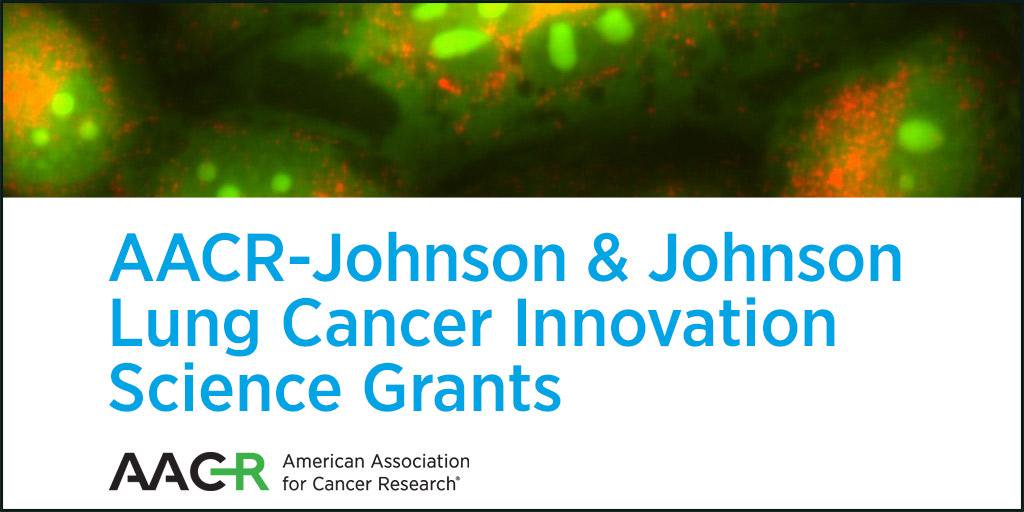
2019 AACR-Johnson & Johnson Lung Cancer Innovation Science Grants
Deadline: July 19, 2019.
The AACR-Johnson & Johnson Lung Cancer Innovation Science Grants represent a joint effort to address the need for promoting and supporting collaborative cancer research in areas that include digital therapeutics and smoking cessation biomarkers/behavioral phenotyping, to bolster our understanding of how lung cancer can be successfully intercepted.
ELIGIBILITY
1. At least two, but no more than three, co-applicants from distinct institutions are required. The team will be directed by the Lead Principal Investigator (Lead PI) and include up to two additional co-Principal Investigators (co-PIs). The Lead PI is responsible for the application, disbursement of funds to the various research projects, the conduct of the projects, and progress reporting.
2. Principal Investigators (PIs) must have a doctoral degree (including PhD, MD, DO, DC, ND, DDS, DVM, ScD, DNS, PharmD, or equivalent doctoral degree) in the biomedical sciences or in a field applicable to health science research and not currently be a candidate for a further doctoral or professional degree.
3. In addition to the co-PIs, the Project Team should also include at least one young investigator (e.g., postdoctoral or clinical research fellow; junior faculty member). While not a co-PI, this young investigator should play a key role in the project.
4. Applications will be accepted from independent investigators at all levels who are affiliated with an academic, medical, or research institution anywhere in the world.
5. There are no citizenship or geographic requirements; however, by submitting an application for this grant, an applicant applying from an institution located in a country in which they are not a citizen or a permanent resident assures that the visa status will provide sufficient time to complete the project and grant term at the institution from which they applied.
RESEARCH PROJECT CRITERIA
1. Proposals will be accepted for new ideas and innovative approaches that have direct application and relevance to lung cancer prevention and interception. Proposed research should be translational in nature and include a clinical component with an endpoint relevant to improving the detection or treatment of lung cancer.
2. Proposals should focus on the areas of identification of populations at high risk for lung cancer, including digital therapeutics, smoking cessation biomarkers, and/or behavioral phenotyping. Prioritized areas of interest may include: clinical trials that would identify unique high-risk patients for lung cancer and demonstrate sustained efficacy through the measurement of both quit rates, as well as disease-related biomarkers; clinical trials that would identify digital therapeutics focused on smoking avoidance for first-time smokers or for former smokers- these therapeutics may consider the impact of social engagement, gaming, and other content relevant for population at a risk of starting or resuming their smoking habit. The inclusion of a strategic plan for clinical confirmation of the digital therapeutic study is recommended.
GRANT
Research grant worth $ 1,000,000 USD
OFFICIAL LINK



